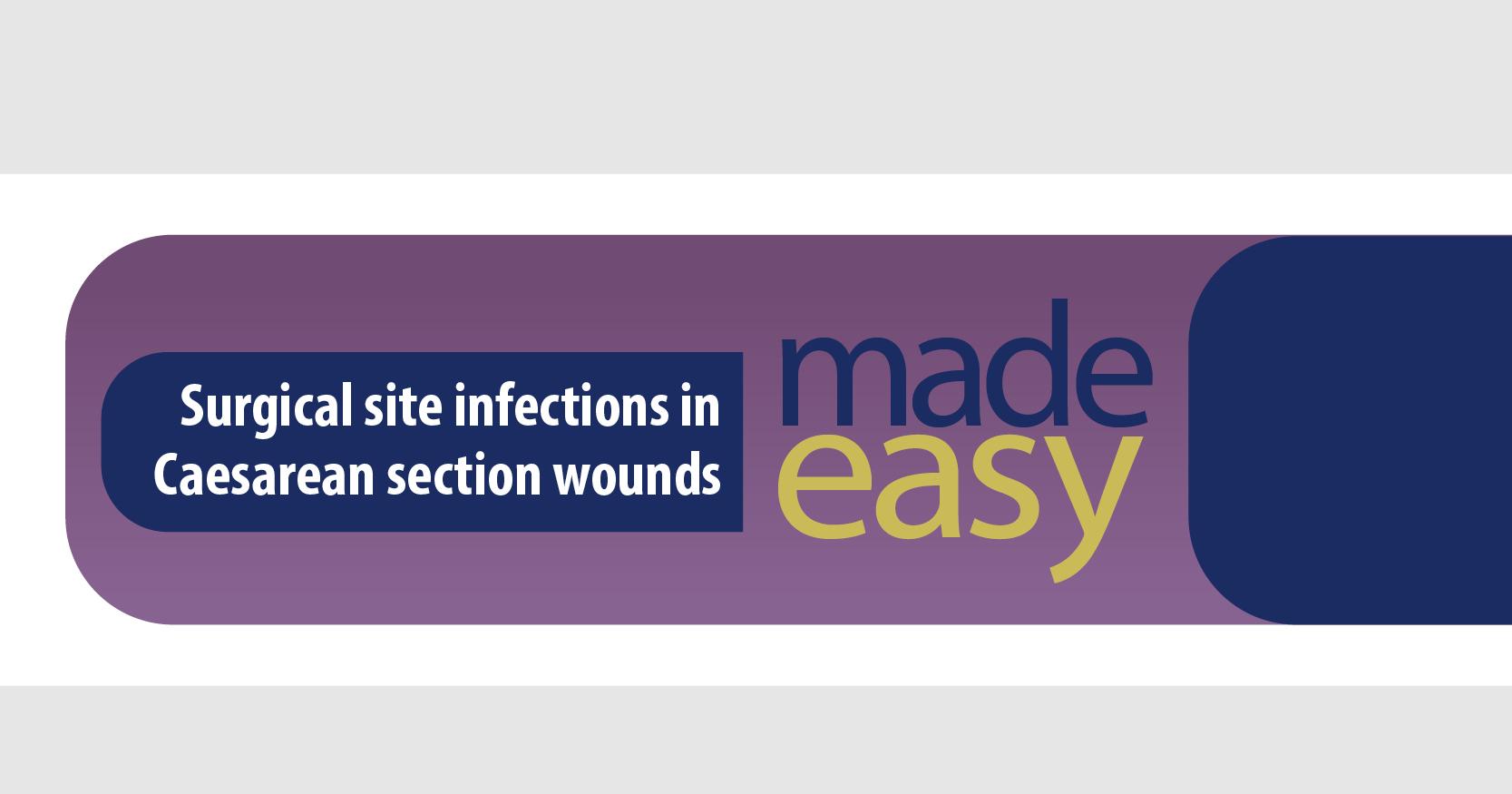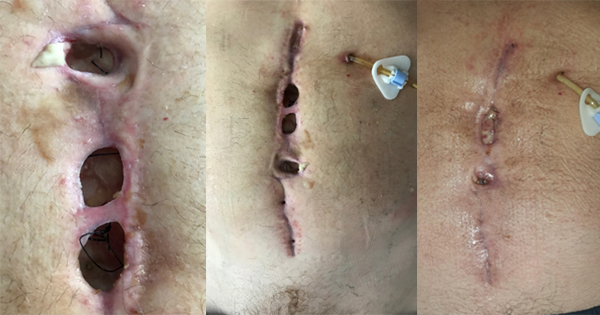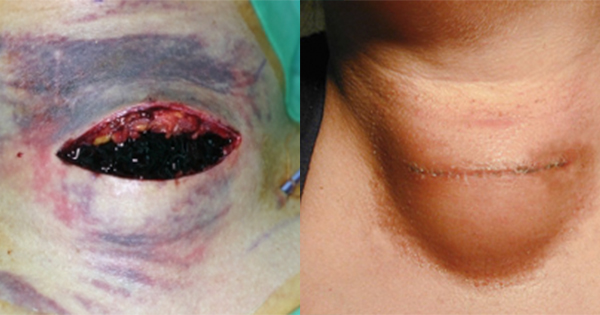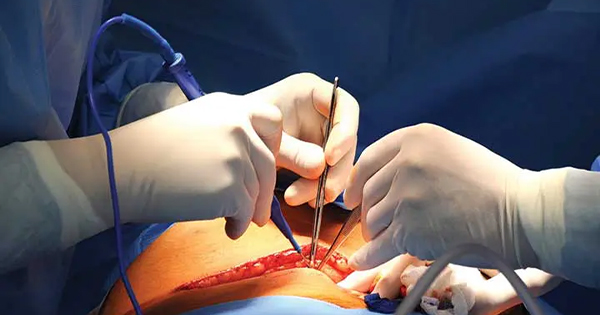Background: In 2016, the Royal Brompton Hospital site introduced frequent/repeated swabbing of the chest wound site from 2 days after surgery to screen for alert organisms. Following this, the number of surgical site infections (SSIs) increased. Methods: The authors used prospective SSI data and audited the characteristics of patients who developed SSIs. They also reviewed other factors that might have an impact on SSIs to identify the possible cause. Results: No single surgical team, theatre/environment or product was associated with the outbreak. Audit data demonstrated an almost four-fold increase in superficial SSIs that coincided with the introduction of the intense swabbing regimen (means: 0.7% prior to and 2.6% after the introduction of screening). Conclusion: Early and frequent or repeated swabbing of a healthy new surgical wound may disrupt the epithelisation/healing process and increase the risk of infection by opportunistic pathogens. Further investigation and analysis is needed.





